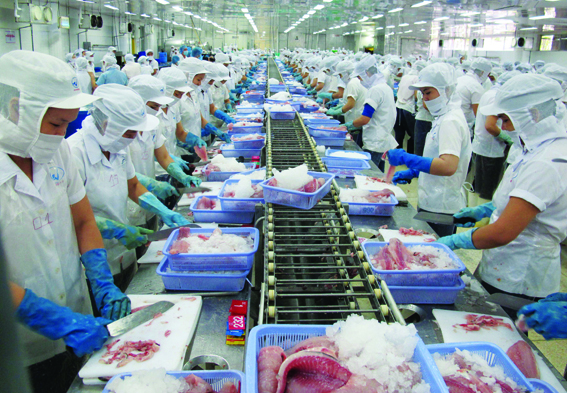The new Land Law was passed on November last year and will take effect on July 1, 2014 (the 2013 Land Law). This Law devotes a whole chapter, Chapter VI, to providing land recovery and compensation.
Land recovery
The 2013 Land Law specifies cases of and grounds for land recovery so as to facilitate land recovery in reality and prevent arbitrariness in this work. Accordingly, cases of land recovery are classified into four groups: recovery for national defense or security purpose (Article 61); recovery for socio-economic development in the national or public interest (Article 62); recovery due to violations of law (Article 64); and recovery due to termination of land use, voluntary return of land, or risks of threatening human life (Article 65). Compared to the 2003 Law, the 2013 Land Law adds the case of land recovery due to risks of threatening human life.
The 2013 Land Law also specifies how to deal with recovered land and land-attached assets for each group based on its feature.
The 2013 Land Law sets strict sanctions for the failure to use land that is allocated or leased for implementing investment projects within 12 consecutive months, or the use of land 24 months behind the schedule stated in the project document, counting from the time of handover of land in the field. Specifically, if an investor fails to put the land into use, the land use term may be extended for 24 months and the investor must pay a sum of money equivalent to the total land use levy or land rental for the delayed period. Past the extended time, if the investor still fails to put the land into use, the State may recover the land without compensation for land and land-attached assets.
For the use of land for production and business, the 2013 Land Law introduces two mechanisms. Under the first mechanism, the State may recover land for socio-economic development in the national or public interest. To detail Article 54 of the new Constitution, the 2013 Land Law tightens management and reduces cases of land recovery for the above purposes. According to Article 62 of the 2013 Land Law, the State may recover land for implementation of projects of national importance approved in principle by the National Assembly, projects approved or decided by the Prime Minister, and projects approved by provincial-level People’s Councils. As per the second mechanism, the State will not recover land. Investors and land users will reach agreement on the use of land for production and business through transfer and lease of land use rights and receipt of land use rights contributed as capital. Under Article 73, the State will adopt policies to encourage the lease of land use rights or the receipt of land use rights contributed as capital of economic organizations, households and individuals to implement projects or facilities for production and business.
Regarding competence to recover land, the 2013 Land Law additionally provides that provincial-level People’s Committees may decide on recovery of land areas used jointly by organizations, households and individuals.
The 2013 Land Law also adds provisions on cases and duration of land requisition and compensation for damage caused by land requisition.
Compensation for land
The new Land Law lays down principles of compensation for land upon land recovery by the State. These principles differentiate between land-related compensation (Article 74) and asset-related compensation (Article 88).
Land users meeting the conditions prescribed in Article 75 upon land recovery by the State will be compensated. Compensation must be made in the form of allocating new land with the same use purpose as the recovered land. If there is no land available for compensation, the land users will be entitled to compensation in money calculated based on the specific land price set for the type of recovered land by the provincial-level People’s Committee at the time of the recovery decision.
Under the 2013 Land Law, compensation costs will be based on not only the type of land and land users but also the remaining land use term.
According to Article 81, for overseas Vietnamese, foreign organizations with diplomatic functions, and foreign-invested enterprises using non-agricultural land which is leased with full one-off rental payment for the entire lease period, they will be compensated for land according to the remaining land use term when the State recovers land. If using non-agricultural land which is leased by the State with annual rental payment, they will be compensated for the remaining investment costs on land upon land recovery by the State. Overseas Vietnamese using non-agricultural land which is not residential land or land of cemeteries or grave yards will be compensated with land having the same use purpose. If land is not available for compensation, they will be compensated with money calculated based on the remaining land use term.
For projects funded by international or foreign organizations for which Vietnam has committed to applying a separate policy framework for compensation, support and resettlement, that framework policy will apply.
For investment projects decided by the National Assembly or approved in principle by the Prime Minister which require relocation of a community, thus affecting the community’s life, socio-economic activities and cultural traditions, the Prime Minister will decide on the policy framework for compensation, support and resettlement.
In addition to receiving compensation, land users will also be entitled to various types of support from the State, including: support for life and production stabilization; support for training, occupation change and job seeking for cases of recovery of agricultural land from households and individual directly engaged in agricultural production, or of recovery of land which is a combination between residential land and land for trading and services of households and individuals that have to be relocated; and resettlement support in case of recovery of residential land from households, individuals and overseas Vietnamese, leading to their relocation to other places of residence.-
